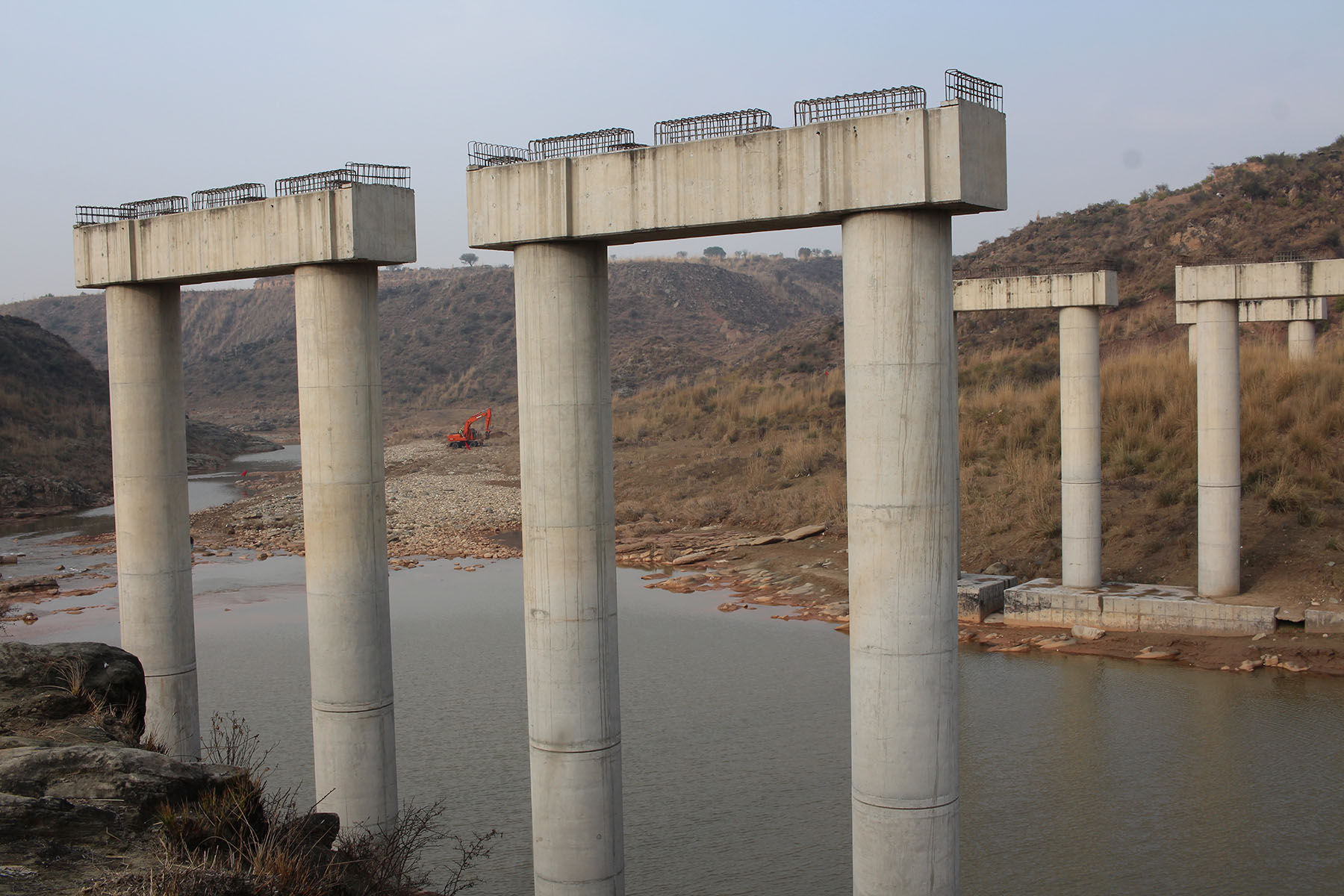
Winner
Rawalpindi Under Siege
- Sibth-ul-Hassan Turi

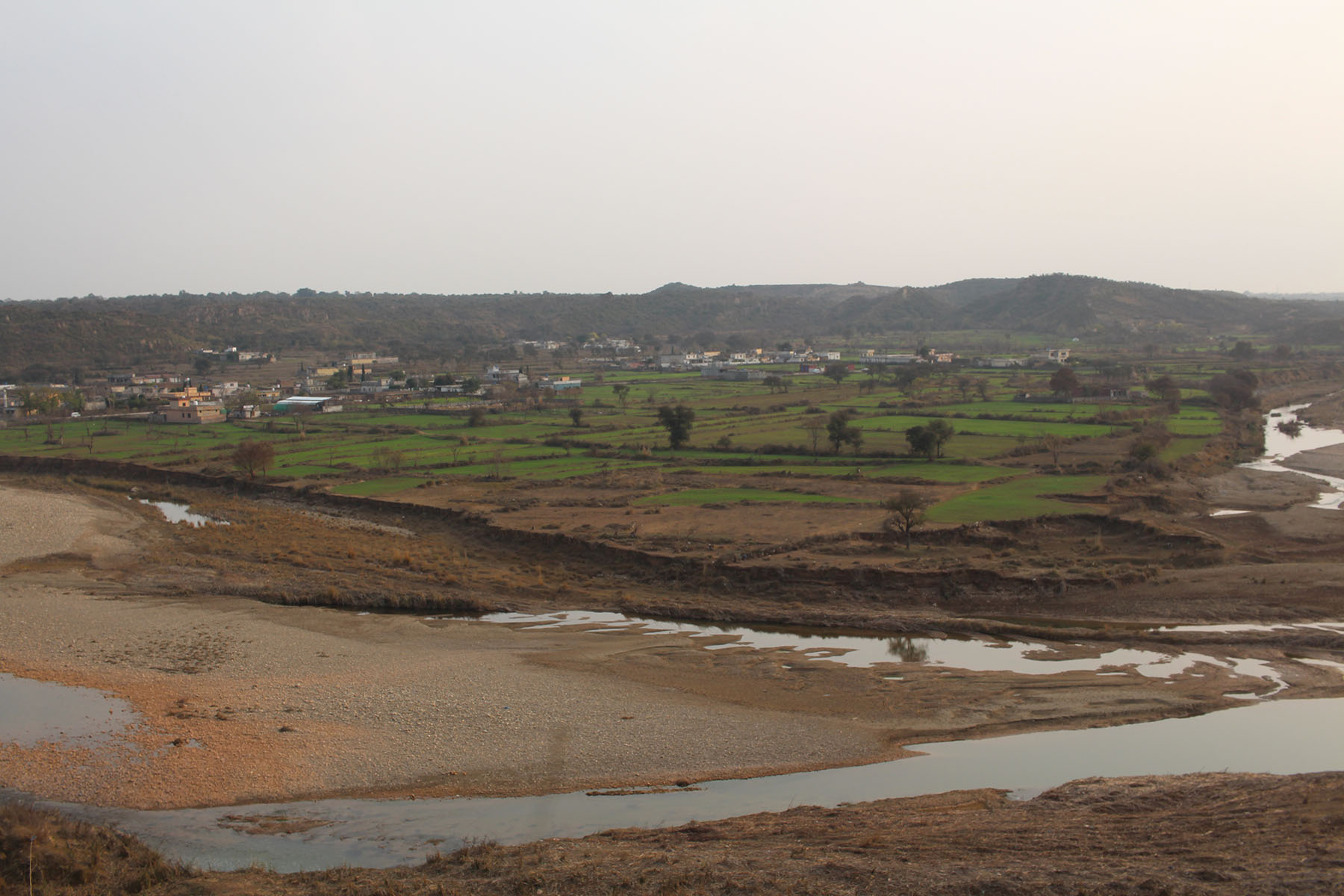
A view of Dadhocha, Bharwala, Khanpur, Dhadhar Najaar, Mohra Wains villages close to the Rawat industrial areas in Rawalpindi.
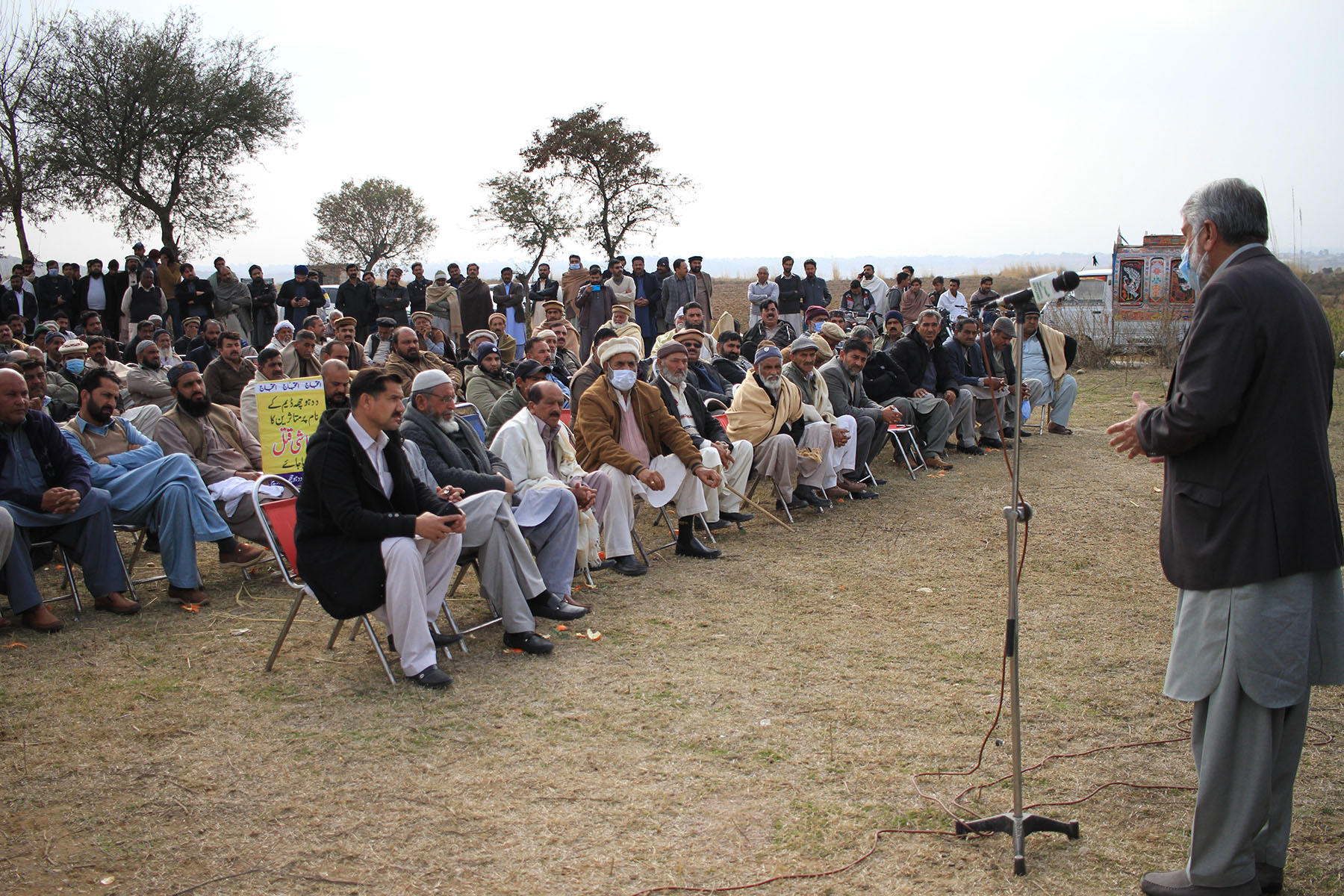
On 3 January 2021, the residents of the village Dadhocha gathered to protest against the dispossession of their homes in their village
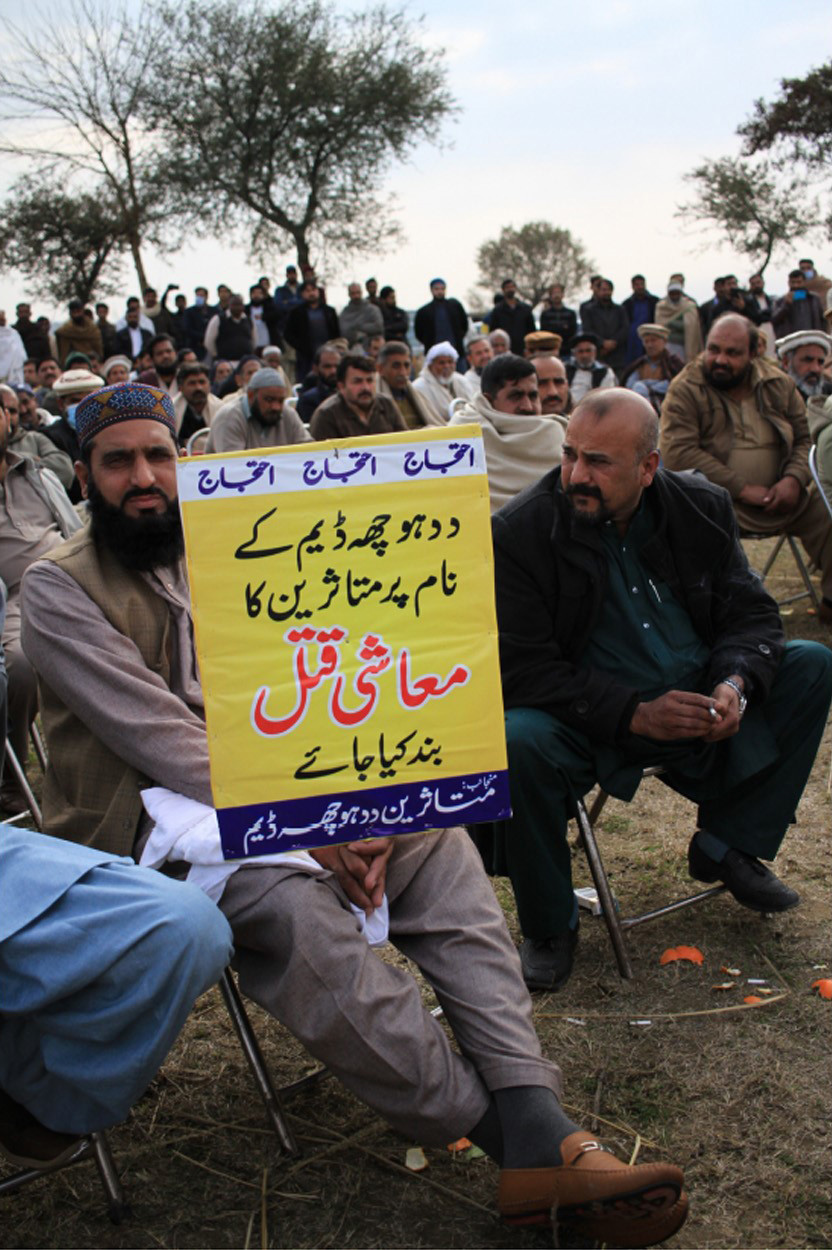
Local farmers and villagers said that the Punjab government and district administration had commenced construction of the dam without any settlement with the indigenous inhabitants or a resettlement plan.

They were being offered a pitiful Rs. 5000 per marla for their agricultural land which was a fraction of their actual market value.

The same agricultural land in the area under the Defence Housing Authority (DHA)'s possession was being valued by the latter at nearly 80 times that price.
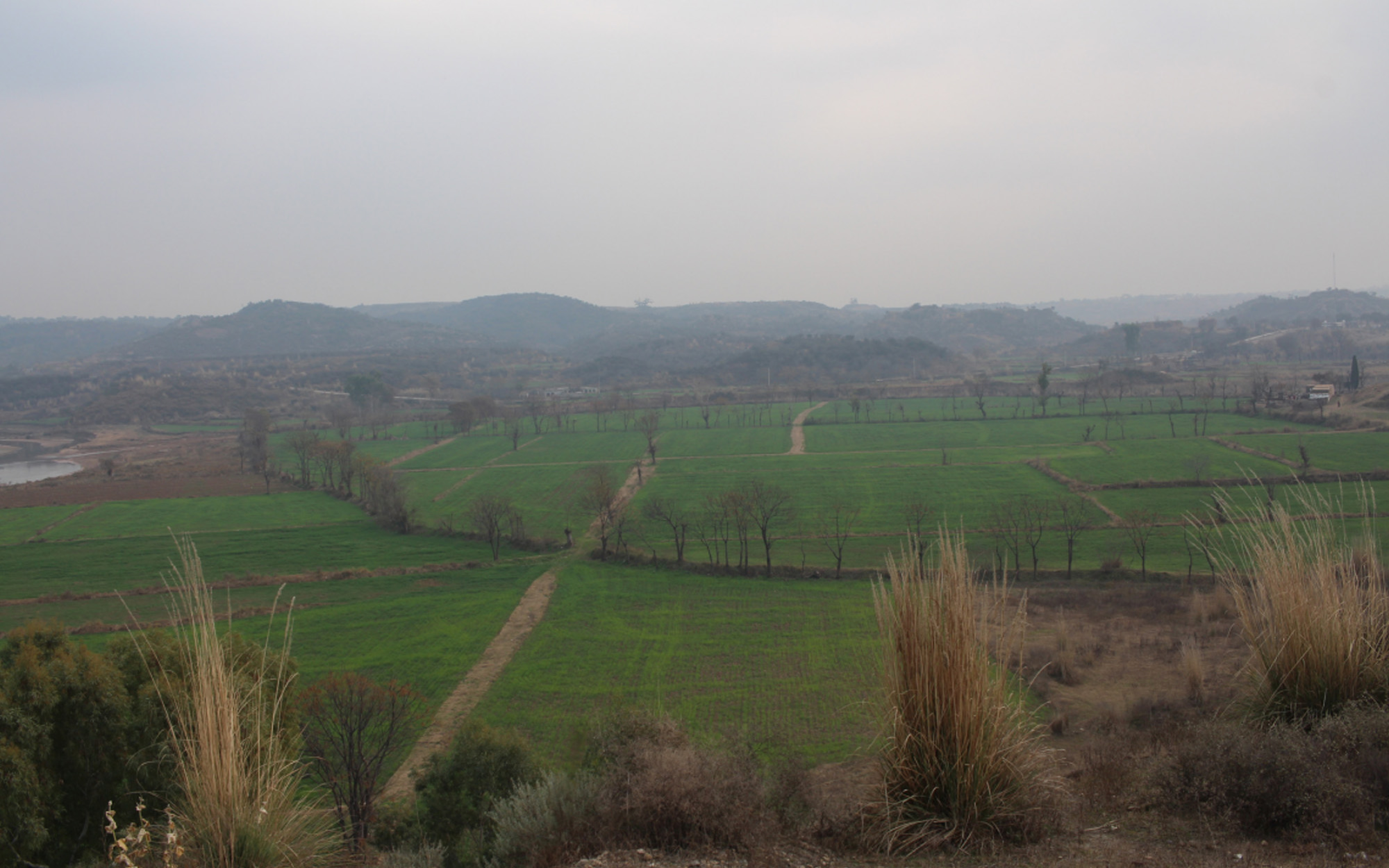
The locals are being dispossessed of lands that were even beyond the limits of those demarcated for the dam, ostensibly for commercial purposes. Some residents spoke of how the adjacent DHA Valley had also occupied their ancestral lands despite the fact that a court had already ruled that it belonged to the villagers. They said that this occupation by DHA was preventing them from resettling their households in the nearby location.

The locals are not against dam construction to benefit Rawalpindi’s residents but said that it should not be done at the cost of the forced displacement of local inhabitants, who should instead be justly compensated and resettled within the area. The residents were not even sure if they could now bury their deceased loved ones in the local graveyard as that too would soon become submerged following the dam’s construction.
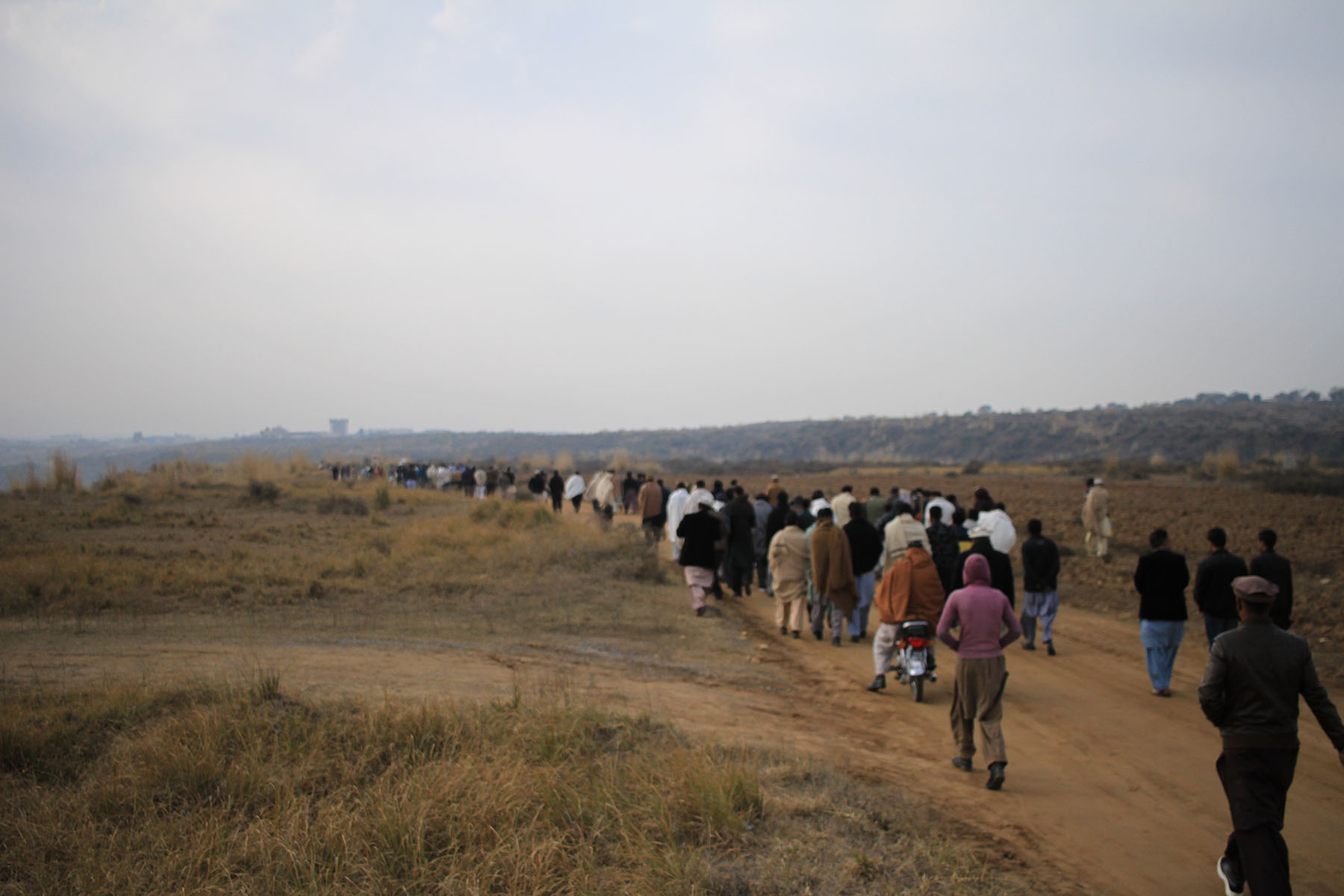
After the public meeting, residents undertook a peaceful march to the site of the dam construction.
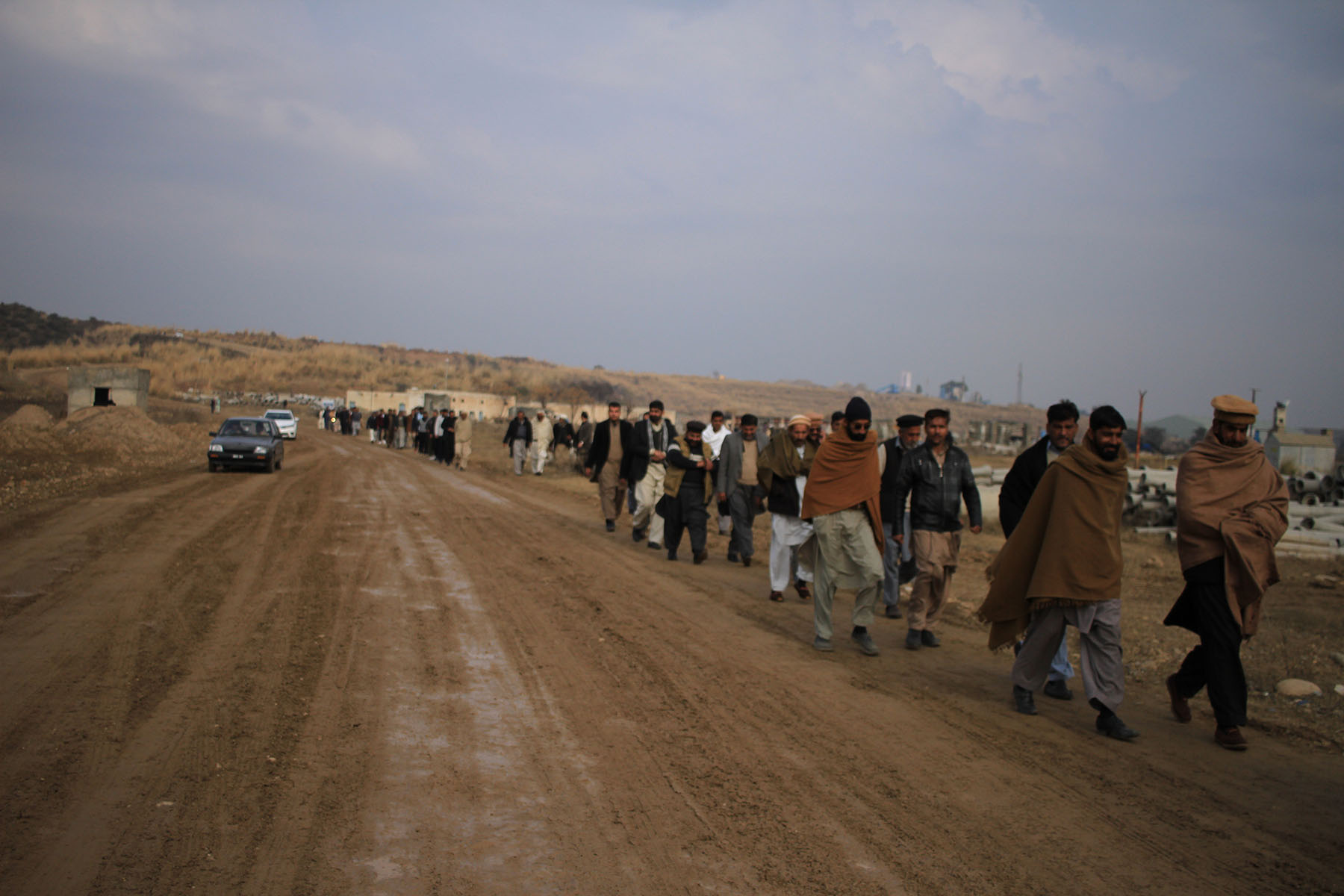
The residents of the affected villages are walking to the construction site.

The Frontier Works Organization (FWO) had set up its camp. The locals called on the on-site officers to abide by court orders and not begin construction of the dam without reaching a just consensus-based settlement with the local residents.

The residents of the affected villages forced FWO to stop work on the site.

Residents of the village are having conversation with the Deputy Commissioner (DC) of Rawalpindi.

The protestors vowed that if the construction doesn't stop they would organise a march to Islamabad.
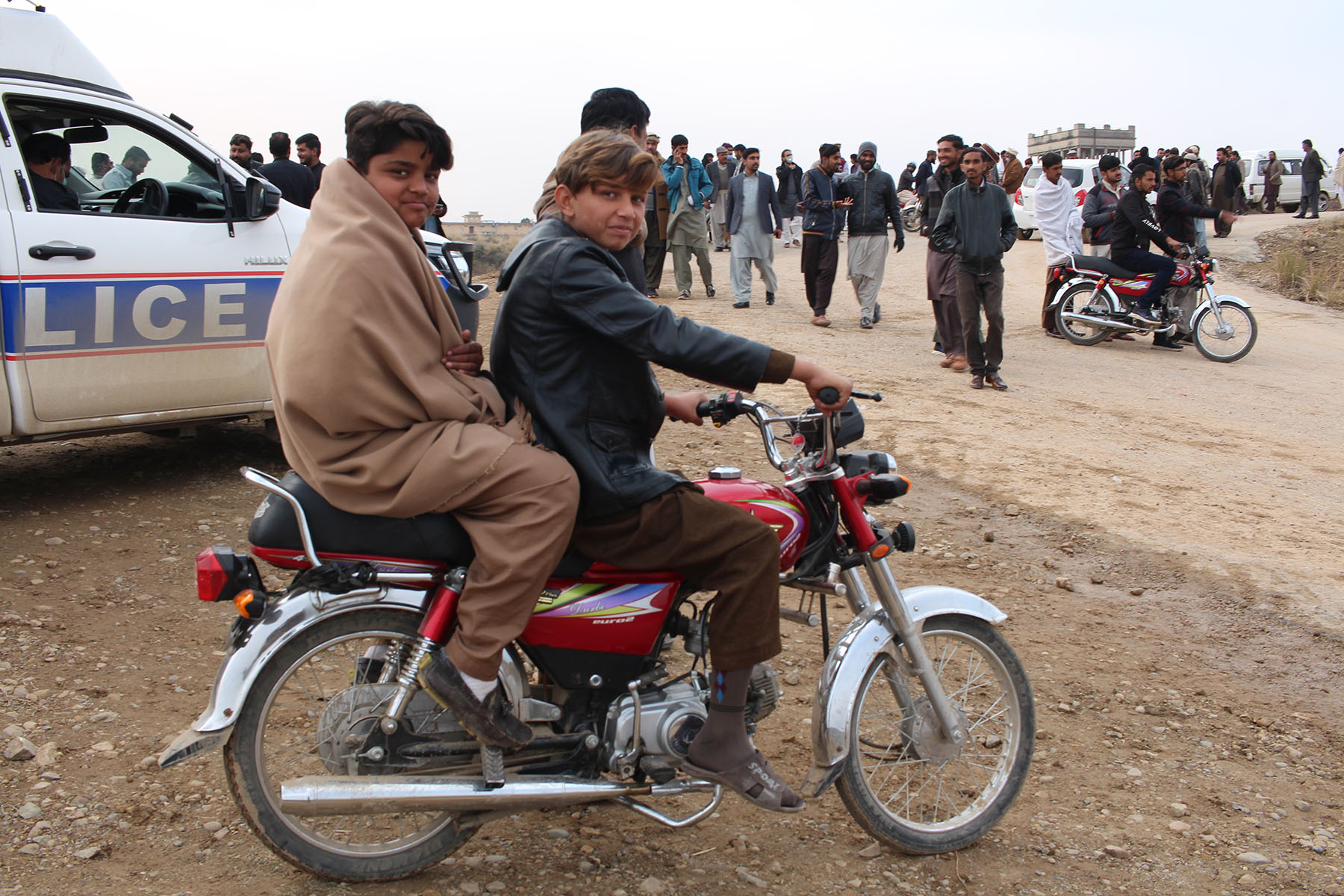
The construction is some distance from the villages, so many people brought their bikes
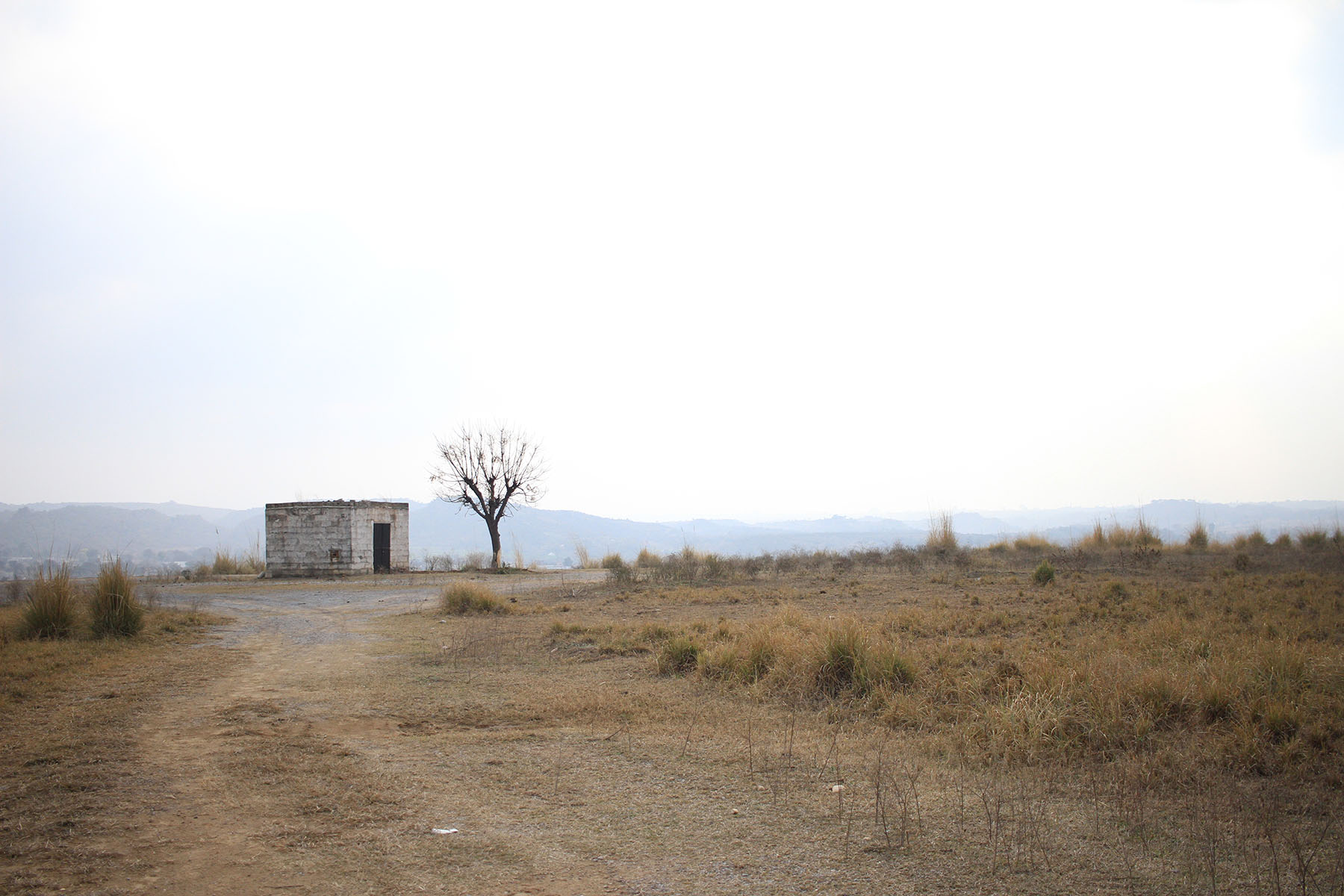
Locals have made watch towers to protect their communal lands from land grabbers.

View of construction site of the Dhadhocha dam.
Sibth Ul Hassan is a scholar-cum-activist based in Islamabad and Kurram district, Khyber Pakhtunkhwa, who does research on agrarian political economy and political ecology.
"Land dispossession movements around the real-estatization of land is on the rise throughout Pakistan. The issue has been ignored by mainstream media and political parties, so I selected this protest to bring this issue into the limelight."
"In my view, freedom of assembly fosters a culture of open democracy, enables non-violent participation in public affairs, and invigorates discussions on important issues. Freedom of assembly is an important means through which the public can express their views to their leaders and to other members of society, promoting public discourse and diversity. In democratic societies, free assembly is one of the instruments by which people can bring about social change. Protection of the right to freedom of peaceful assembly strengthens democracies, therefore this right should be upheld."